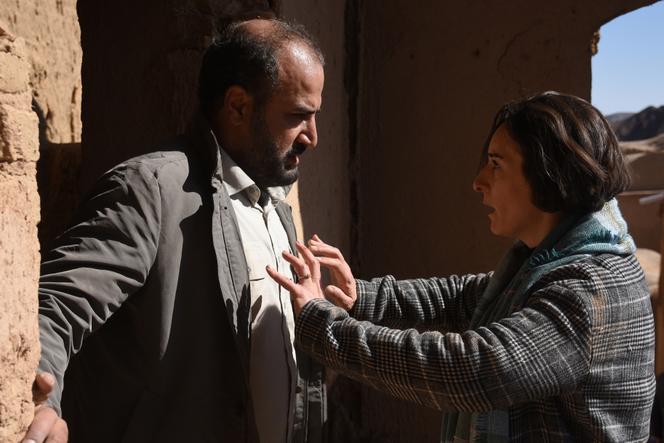


LE MONDE'S OPINION – A MUST-SEE
For an Iranian filmmaker, there are several ways to challenge the current regime. First, there's the subtle, understated style of the late Abbas Kiarostami (who died in 2016 at the age of 76), an icon of world cinema, whose global reputation made him very difficult to imprison. In contrast, there's the more direct style of his former assistant and successor, 64-year-old Jafar Panahi, whose films blend political engagement with the magic of fiction. This led to his imprisonment and ban on filmmaking. Despite this, he has shown immense courage and ingenuity to continue making films.
Last but not least, 51-year-old Mohammad Rasoulof, known for his confrontational style – reminiscent of Bruce Lee and Dominique Valera – has landed him in all kinds of trouble. Since launching his career in 2002, Rasoulof has directed eight feature films, most of them secretly. His latest one, The Seed of the Sacred Fig, has led to what seemed perhaps inevitable: the filmmaker's outright exile from Iran.
This excellent film, a sort of guide to the collapse of Iran's autocracy, is well worth seeing to understand why. In the film, Rasoulof attempts to depict the inner workings of totalitarian thinking, which he skilfully conveys through the prism of a middle-class family torn apart by intergenerational conflict.
The drama unfolds around two simultaneous events. Iman, the family patriarch, is appointed to the dreaded post of judge in Tehran's revolutionary court while the "Woman, Life, Freedom" social protest movement erupts in response to the September 2022 murder of Mahsa Amini by the morality police, who accused her of being improperly veiled.
At this pivotal moment, a clear divide cuts through the family. The couple's two daughters, Rezvan and Sana, immediately side with the youth protest movement, which they follow closely on social media. Meanwhile, their parents pretend to stay informed through the regime-controlled television, where the events are distorted. The first act of conflict comes from the mother. Najmeh is neither a fanatic nor a cruel woman, but she is content with her improved social status – and consequently, their upgraded apartment – that her husband's new position has brought them.
Taking to heart the decorum, discretion and exemplary behavior expected of the family of a Revolutionary Court judge, she keeps a close watch on her teenage daughters, fulfilling the subtle but crucial role of managing the patriarchal household. This means both relieving her husband of the burden of running the home and protecting her daughters from his strict discipline. Naturally, this is done within the limits of her power, which is put to the test when the daughters bring a friend who has just returned from a protest with a severely injured eye.
You have 44.63% of this article left to read. The rest is for subscribers only.
